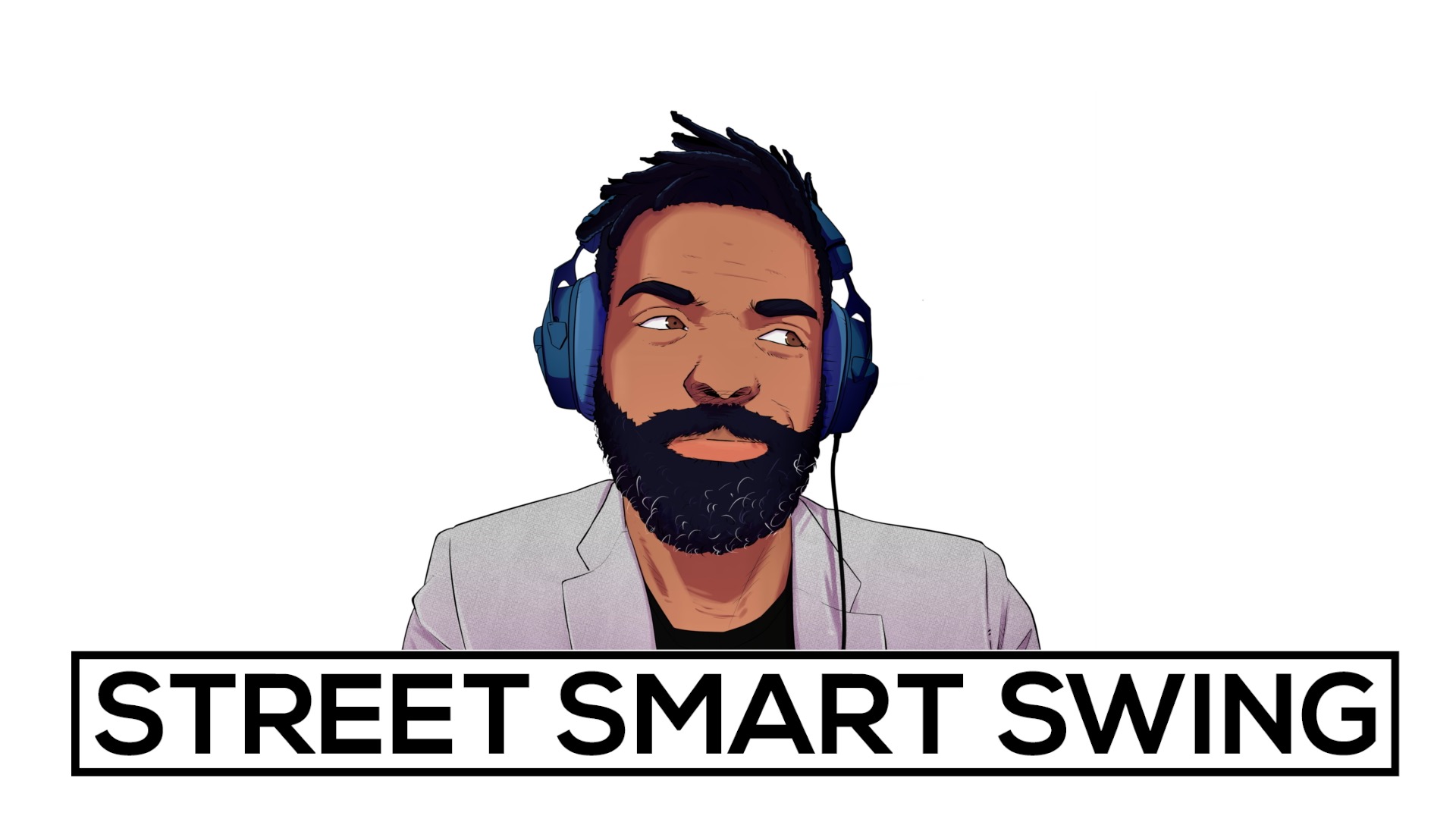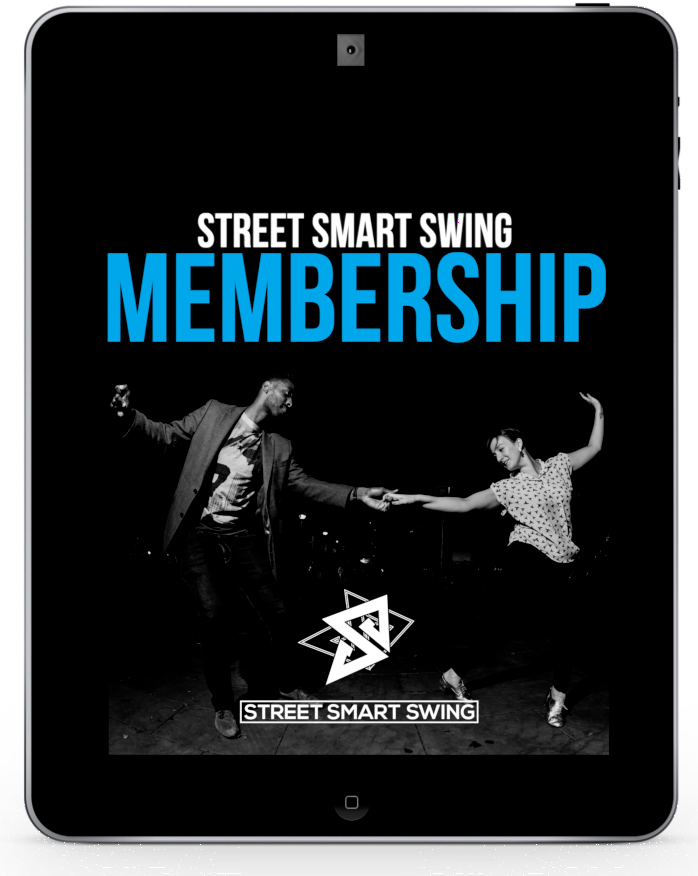My Racist Experiences in Lindy Hop | Jamin Jackson | Lindy Hop Swing Dance
I hope my perspective gives you a sobering warning to learn the key lessons from history, so we can all avoid repeating the worst aspects of it.
Racism in the swing community
I’m going to be talking about my experiences with racism in the swing community. This is the very first time I’m openly expressing my experiences in this format and I do realize that just talking about the subject of racism is touchy for people. The point of this video is not to make people upset or garner pity.
I just want to be that voice that continues to challenge people not to think on auto-pilot. Especially when it comes to people issues that continue to impact swing dancing. I’m ultimately going to talk about this because I want to see Swing Dancing preserved and innovated with care.
How I will be addressing racism in the swing community
So I’m gonna cover a little bit of my own personal story along with some actual accounts in Jazz history. As you listen please keep your feelings grounded by always imagining yourself being put in the other persons situation. I like to call this keeping a mindset of intellectual honesty and moral consistency.
Now I will say up front that I’m not too quick to use the word racism the way everybody likes to throw it around today. Many of the things I experienced had to do more with people prejudging me based on things other than my character.
Even though we’ve all had that happen a lot of people like using that word as a weapon to get people to do what they want them to do. I normally don’t prefer using the word because of this type of inconsistent usage. But I will use the word racism in this video to highlight my points and to challenge you to be intellectually honest and morally consistent.
How I didn’t experience racism in the swing community
Let me first just say that I have never experienced racism in the swing community like anyone else’s claims of racism in the swing community. No one has ever rejected dancing with me because of my skin color or called me the “N” word. I’ve had someone make fun of my hair, but who hasn’t had that happen before.
However, I have experienced being prejudged by people who expected me to behave a certain way all because of my complexion, and when I didn’t meet those expectations their attitude their true character was exposed. This has happened from people with all types of various complexions. You see how I said that. I don’t even like using the words white or black people because we really don’t mean just their skin color.
The current culture we live in uses those terms to subtly equate color with behavior, and that isn’t right. In my case, a lot of this type of pre-judgement has happened mostly from people who project to the world that they are very open minded individuals.
Racism or Privilege
Most people today wouldn’t even deem my first experience with racism in the swing community as racist according to how people have come to use the word. It happened after winning my 2nd dance competition.
Years ago I was one of the only Americans with brown skin who could swing dance at a level above mediocrity and I ended up working with a world class instructor and won first place in an international competition.I then started to gain a lot of attention and people that I didn’t even know from other countries starting to email me about coming to teach at their events.
I initially thought wait a minute, I just won a competition. It was just choreography and I’m still learning how to do this dance. It doesn’t mean I can teach it to others. But for whatever reason me being a novice at teaching and an ok social dancer didn’t matter.
Even though I won that competition based on a lot of hard work, I felt I really didn’t deserve being hired as an international teacher. Some of you may ask was this racism or privilege? Which is a fair question. But I understand why people from other countries wanted to hire me and it’s because what I like to call the Chuck Norris principle.
The Chuck Norris principle or real racism?
You see, when a group of people are wanting to learn Chinese kung fu and they’re learning from Chuck Norris, in their minds it’s kinda of an inauthentic experience because though Chuck Norris have the skills, he’s not Chinese. If people suddenly see a person who looks like Bruce Lee, they want to take classes from that guy. I get it. People want to learn Chinese kung fu from a Chinese person.
Some of that thinking process may be rooted in real racism, but I doubt it. Most of the time it’s just a value projection based on someone’s ethnic look. That’s why I got hired at first. Most won’t call that racism, nor will they have the guts to call it privilege.
My racist experience of “brown privilege”
And yes, for those who are hyper political we all receive privileges based on things others many not have the benefits of having. Some people are tall and some are short. Both have advantages and disadvantages.
Many other people were well qualified to be hired, but unfortunately they did not have the skin color that matched the people who created the dance, and even though they could dance better than me they weren’t shown as much favoritism. It’s as simple as that. And if I’m intellectually honest and morally consistent, I received what I like to call a racist experience of “brown privilege.”
How I capitalized on brown privilege
Now at that time, I was 4 years into marriage and we had our first child and I wanted to be respected for my swing dance contribution even though I had very little time to invest in my skills. This was a great motivator for me to capitalize on brown privilege by continuing to develop my skills to earn true respect and not just become that token black dancer gimmick; What ever that means.
As my teaching pedagogy and dance skills improved more internationals started seeing me as someone who deserves respect based on my actual skills. But here’s the ironic thing. During this entire time of me teaching internationally with some of the best dancers in the world, I was never invited to any of the major events in my own country.
Which is really weird when you think about it. Let me give you an example to help us stay consistent. This is for you American Swing Dancers.
Not being hired to teach in my own country
Think about this, what if former President Donald Trump owned all of the Swing Dance Events in America knowing the art was created by black Americans and never invited the only pro black American to any of his events? Let that sink in. People would be screaming racism from the rooftops, and we all know it.
However this is exactly what happened to me. Not one major American event known internationally hired me to teach in my own country. None of them. They didn’t invite me to judge, or to even speak about the black experience in America. Nothing. According to this modern standard of so called racism, what other reason could there be to not invite an internationally known Lindy Hopper who is Black?
Now I’m not so quick to just say that it was because of my color, I think it was for reasons that line up more with my second experience of racism. That one was more alarming to me. I like to call my first example of racism, favoritism and not racism because it happened in a positive light. But I could argue even though it was positive, the initial reason to higher me was based more on color.
“Not the racist white people”
So eventually after many years of teaching and traveling internationally I was invited one time to a major American event. At the time the event had a bunch of bad publicity because of an alarming amount of criminal activity taking place at their event.
They of course were trying to clean up the events image and made major changes the year they invited me.That year they hired an all female band and a bunch of “black” teachers. Nothing wrong with doing either of those things.
But I honestly don’t believe the changes they made were put in place to really deal with the root the problems they were having. As sad as it sounds, I honestly feel they made the changes to make them look like we’re not sexist or “we’re not the racist white people.”
I’ve always liked to visit a community at least once and so I responded to the invitation and provided my credentials with a list of instructors who I taught with regularly.
Carpool to the event
What took me by surprise is that the event insisted I worked with none of my main professional partners listed on my contract. Instead they wanted me to work with a partner who had very little experience but who happened to share one thing with me; and that is we both were brown.
Initially, I thought this was kind of forward and odd that they would prioritize skin color over teaching and dancing ability. Especially, at an international event bringing in such high level talent. People want to pay for the best right? Of course I gave them the benefit of the doubt, but what made the situation even more alarming was they were flying international teachers from everywhere but they wanted me out of all people to carpool to the event.
I had to be as diplomatically firm as possible to get them to treat me the same way they treated my peers. Sounds crazy but it happened. Now of course I didn’t jump on the internet and start screaming racism and demanding that people hire me only because of my color.
How Duke Ellington handled John Hammond
I tried to model myself after Duke Ellington’s example on how he handled John Hammond. Many of you all do not know but John Hammond was a very wealthy and influential promoter of Jazz and was responsible for putting a lot of people on the map.
Benny Goodman, Billie Holiday, Count Basie, Charlie Christian, Lionel Hampton, Bob Dylan, Bruce Springsteen, there is so many different artists that he helped. There’s a really great book called the “Producer” that covers his story in detail which I would recommend.
One of things that John was passionate about was Jazz music, but what he loved even more than Jazz was his political ideology. He was so obsessed that he used it to impose what he wanted onto Jazz and it caused a lot of harm to the artists in the Jazz community at the time.
Yes he’s responsible for so many good things like integrating the first jazz band, connecting Billie Holiday with Teddy Wilson, connecting Lionel Hampton with Benny Goodman.
But in most cases it all came with a catch. Everything had to be on his terms, which included his political ideology.
John Hammond’s true passion
If you were talented and championed what he believed, or even if you were just indifferent or just remained silent; he was all for you. If you didn’t agree with him culturally appropriating Jazz for his political platform, you were enemy #1.
Whenever he encountered Duke Ellington, who wasn’t interested in appropriating Jazz as a political weapon to reform the civil rights movements in the south, John Hammond’s true passion was exposed when he tried to sabotage Duke Ellington’s influence. Rather than defend himself point by point Ellington took Hammond to task for flagrantly violating conflict of interest standards.
How Duke Ellington retorted
Here is how Duke Ellington retorted:
“To properly judge the modus operandi of Hamon it is necessary to devote some thought to the man himself. He appears to be an ardent protagonist and champion of the lost cars.
He apparently has consistently identified himself with the interests of the minorities, the Negro peoples, to a lesser degree, the Jew, and to the underdog, in the form of the communist party.
John has identified himself so strongly in certain directions that he no longer enjoys an impartial status which would entitle him to the role of critic. He has continued to publicize his opinions of musical units other than those to which he has been attached, freely condemning and condoning, ignoring the fact that he has forfeited the right to do this. Such tactics would not be tolerated from the business man and they are doubly unappreciated when employed by one whose name and position allow him to remain immune from counter-attack.”
Prial, Dunstan. The Producer. Distributed in Canada by Douglas and McIntyre Ltd. Printed in the United States of America first edition, 2006
So you see. John wanted to insert his political beliefs into jazz music and intimidate one of the greatest jazz personalities of all time. Simply because Duke did not want to use his music for John’s political causes.
My experience with conflict of interest
I have experienced the same type of conflict of interest in many ways throughout my influence in the Swing Dance community. I’ve continued to model my example off Duke Ellington by just focusing on the art.
But in the last 10 years I have found it very difficult to just do that when a large portion of people influencing swing dancing are acting in ways similar to what John Hammond did.It doesn’t matter how popular you are or how much money you have, or how many years you’ve been associated with Lindy Hop.
You are either appropriating swing dancing as a platform to promote what you really care about like John did or you’re not. I think all of us can learn a lesson from these two historical jazz figures.
Many people will not deem what has happened to Duke Ellington and myself as rooted in racism, even though John Hammond wrapped himself around wanting to help those minorities. But as soon as Duke Ellington said I don’t need your help,John’s true colors came out. And I’ve experienced the same thing.
My experience with racism like Duke Ellington
There were two primary groups of people I continually had to deal with as an organizer and a professional dancer.The “whites” had to indirectly insinuate that Lindy Hop is somehow fundamentally bad, and wouldn’t dare say it was outright sexist and racist – they just had to imply it. Otherwise it made them look like the aggressors.
The “blacks” who shared this exploitative perspective just loved getting all their new found attention without having to earn it by simply dancing well. Both of these groups of people fit the behavior of John Hammond mentioned in my video. In my case, every single suggestion was precipitated by voices more excited to use Lindy Hop than participate in it humbly.
My reaction to Racism in the swing community
I was not intimidated at all, and felt bad for the future of the art so I spoke up. If I made it clear that Lindy Hop isn’t racist or sexist and didn’t need to be modernized by them, everyone’s true colors came out. Being exposed so directly forced them to address my point logically or run to their insulated group and labeled me sexist, racist or no longer “black” for not allowing them to do whatever they wanted with Lindy Hop for “political exploitation.” They always chose to do the later.
Not one was bold enough to talk face to face or online to address my points. They were too flustered, and didn’t expect a person with my attributes to tell them they are not exempt from the truth. Both of these groups actions say a lot about how they expect people with my complexion to behave.
Since 100% of every issue was non original and politically motivated, my answer remained the same every time they tried to exploit the genre: “If you don’t like Lindy Hop and think it is sexist/racist/insert whatever you want, it’s best to disassociate from it, not culturally appropriate it for other reasons.”
But of course stating things that kept them intellectually honest and morally consistent made them even more angry because their true motives were exposed. I’m sure we were not the only organizers who dealt with this. I just wanted to make this video in hopes to emboldened others to be respectful and consistent in stating the truth when people want to use Lindy Hop to promote what they really care about. I just want everyone to be held to the same standard of intellectually honesty so no one can dictate a narrative that isn’t true.
Hear my heart
If you’re going to take one thing from this post today, hear my heart. Let’s at least consider that people are individuals and not colors needing to fit the behavior we expect of them.
Let’s practice judging people based on what they do, and not just for how we think they can benefit us.
If we start there, I think they’ll be a lot less racism claims being thrown around.
With that said, thanks for listening guys. I’ll see you soon.
If you haven’t already, check out my Street Smart Swing community membership benefits. You get access to my entire course archive, personal dance feedback and more.
Jamin Jackson


